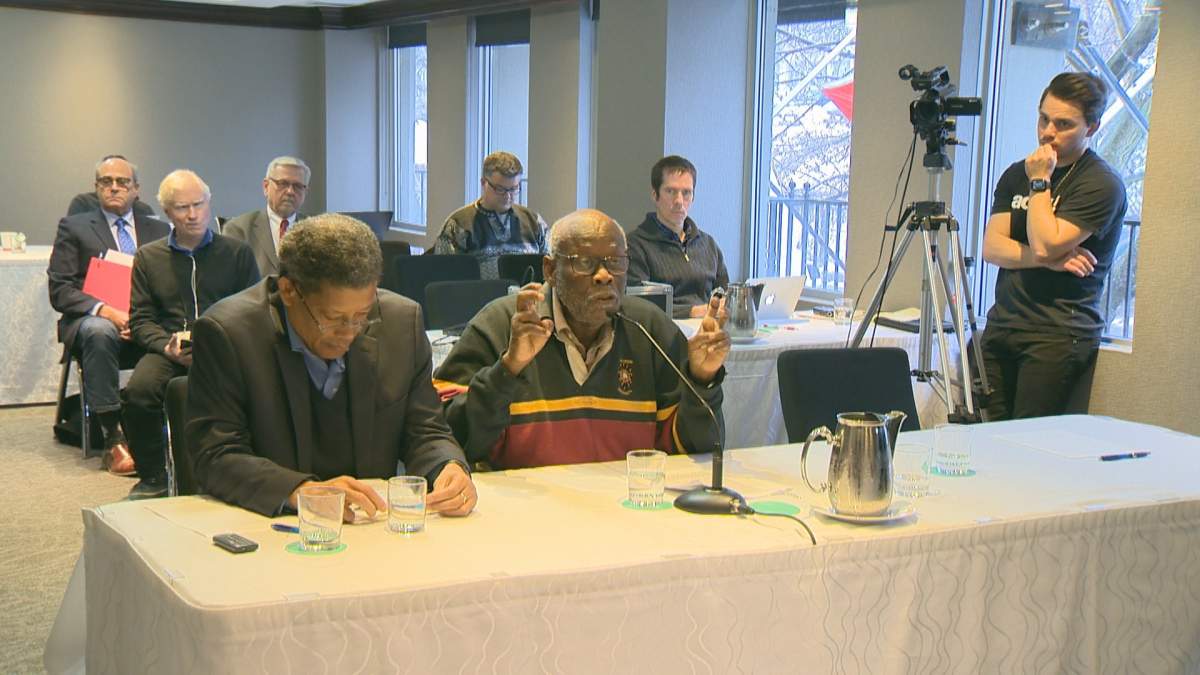The Alliance for the Promotion of Public English-Language Education in Quebec (APPELE-Québec) has released its report on community hearings into Bill 40.

The proposed legislation, tabled by Education Minister Jean-François Roberge, seeks to abolish school boards and replace them with services centres administered by a board of directors comprised of parents, community members and staff.
READ MORE: Unions and education groups ask Quebec government to delay adoption of Bill 40
Under the proposed law, general elections would be eliminated for the French-language school system while English-language school boards would still retain the right to hold democratic elections.
Last month, the government held seven days of parliamentary hearings into Bill 40, but APPELE-Québec chose to host its own hearings arguing that many members of the English community were left out.
READ MORE: Quebec education minister ‘would be surprised’ if Bill 40 is adopted by Christmas
APPELE-Québec heard from 16 groups and two individuals from across the province.
In its report, released on Monday, APPELE-Québec concluded Bill 40 raises too many questions in its current form.
“Bill 40 as it now stands is not acceptable, it won’t work and it doesn’t respect the rights of the English-speaking community,” said Geoffrey Kelley, chair of the organization and a former MNA.

Get breaking National news
The report highlights three key problems that need to be addressed, including who can vote, who can run and what the new service centres will do.
Kelley explained the procedure put forward on who can become a member of the new boards is complicated, not to mention that running an election can be an arduous task.
“I was worried about the fact that it’s a lot to ask the volunteers to do all of this, because I know how hard existing school commissioners work,” Kelly said, adding the education minister’s response during the parliamentary hearings highlighted what he considers to be a fundamental flaw.
“The minister said it won’t be the same thing because they won’t be deciding anything, they’ll be there to just oversee the process but it won’t really be a decision-making body.”
READ MORE; Anglophone groups hold their own Bill 40 hearings in Montreal
Kelley argued that if that indeed is the case, then Bill 40 goes against the constitution.
“If you look at the Constitution, linguistic minorities have the right to manage and control their schools so they have a right to have something to say,” he explained.
Another criticism outlined in the report is that the proposed legislation doesn’t show how the changes will improve school success.
APPELE-Québec’s report will be delivered this week to the education minister and MNAs responsible for studying the bill.
READ MORE: Unions and education groups ask Quebec government to delay adoption of Bill 40
The hope is that the government will delay the passage of the bill and will sit down with the group to discuss possible amendments.
“We’re willing to work to find solutions, we aren’t saying ‘don’t do it, don’t do it,'” Kelley said.
Barring a meeting with the education minister, Kelley said the government should exempt the English School boards from Bill 40 has it has done with the Cree and Inuit educational networks.
The government has said in the past that it has listened to people’s concerns and it is determined to push forward with the law.
Bill 40 is made up of 300 articles amending 80 pieces of legislation.
MNAs are currently reviewing the bill, clause by clause.
While Roberge had hoped to pass the bill before the government breaks for the holidays this Friday, he admitted it was unlikely.
— With files from Global’s Gloria Henriquez and Kalina Laframboise












Comments
Want to discuss? Please read our Commenting Policy first.